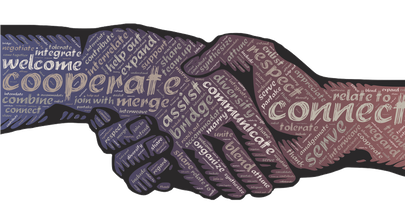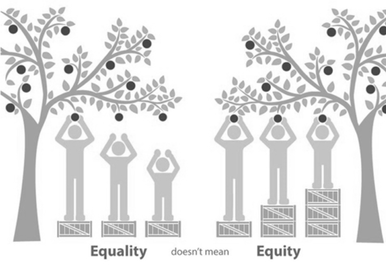|
If you are a professional or a writer who is passionate about health, racial, and social equity, consider contributing to our blog! Visit our Volunteer page to learn more. |
 If you are reading this post, you are likely dealing both as an individual, an organization, and a member of your community with the ongoing COVID-19 pandemic. Us too! At Health Equity Initiative, we are deeply concerned about the potential impact of this outbreak on vulnerable and marginalized populations both in the United States and globally. These communities are likely to be the most affected by the outbreak as they face many barriers to recommended COVID-19 mitigation measures. For example, while for many it's a privilege to work from home in these trying times, many Americans are part of the gig economy and/or don't have access to paid leave, so they sadly have to choose between putting food on the table and protecting themselves. Some people may even lose their jobs as restaurants and other facilities are closing worldwide. Across the world, elderly people increasingly live in isolation and lack the kind of community and social support to shop safely for food or make sure they don't run out of life-saving medications for chronic conditions that may affect them. Homeless people and people who live in jails in the United States, or rural communities in many parts of the world may not have the resources (yes, I am talking about soap and water) for complying with something as simple as washing one's hands. Many college students may not have a "home" to go back to because of poverty, marginalization, broken homes, and other socially-determined factors. For people who live in overcrowded homes or shelters, it may not be easy to practice "social distancing." Access to affordable and quality care varies for millions of people. Many immigrants may fear seeking help because of increasing xenophobia and doubts on whether to trust there won't be any legal consequences. And finally, the millions of children who live in poverty in the United States had to wait or are still waiting for new approaches to get the meals they need being delivered outside of schools.
2 Comments
 We don’t often associate the built environment of our cities as having a major role in health outcomes but as the world’s populations become increasingly city dwelling, the impact of where people live work and play on their overall health is coming sharply into focus. Besides access to affordable health care, access to affordable housing and healthy food markets, and proximity to safe playgrounds, parks, sports fields and community spaces all play a role in contributing to people’s sense of well-being and their health outcomes. In other words, your zip code is more important than your genetic code in determining health outcomes!1,2 All around New York City there is an up-zoning and building frenzy in older neighborhoods, which is creating a mushrooming of highrise luxury towers without enough attention paid to community needs, particularly truly affordable housing. Older residents are being displaced, income inequality and segregation are exacerbated as neighborhood’s communities fragment and infrastructure is strained. Yes- new development is good, but how can it be made to be more forward-thinking? How can we develop strategies to make it more comprehensive, sustainable and resilient to climate change while addressing the communities’ needs?
Back in 2012, Dr. Renata Schiavo, Health Equity Initiative's Founder and Board President, wrote an inaugural website post on why we need a social movement for health equity. Eight years later, many of the actions suggested in the post are still timely. Read to learn about 5 simple steps to help advance health equity! January 6, 2012 at 2:02 am We Need A Social Movement for Health Equity! Here Are 5 Easy Ways You Can Help in 2012! by Renata Schiavo Happy New Year from all of us at Health Equity Initiative! May 2012 bring better chances for better health among vulnerable and underserved populations! Yet, this may not be possible without first building a social movement around health equity issues.
Ask yourself: how often do people in your community, family, organization, and/or professional networks speak about health equity or are even aware that the health experience of vulnerable or underserved populations may differ from the experience of other more privileged groups? How many people know that the place where they live or work, or their ability to access not only healthcare services, but also transportation, adequate housing, education, health information, jobs, social support, or others may affect their opportunity to stay healthy or effectively cope with disease? Not only is good health a fundamental human right, but it is also a necessary pre-condition to secure and maintain jobs or succeed on one’s studies and/or many other small and big endeavors of everyday life. Advancing health equity is key to making sure that people can be happy, self-sustaining and productive in their everyday lives. |
Archives
June 2023
CategoriesEditors:
Renata Schiavo, PhD, MA, CCL Alka Mansukhani, PhD, MS Radhika Ramesh, MA Guest posts are by invitation only. |




 RSS Feed
RSS Feed
